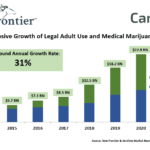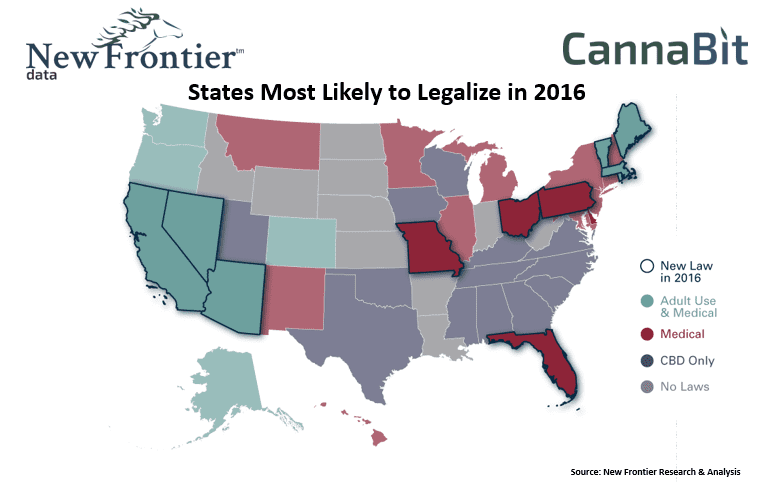States Most Likely To Legalize Marijuana In 2016

2016 Global Legal Marijuana Markets: A Virtual Q&A Session
March 10, 2016
Explosive Growth of Legal Adult Use and Medical Marijuana Markets
March 20, 2016While support of medical marijuana and adult use legalization is strong within the states most likely to legalize, the passage of the measures is not guaranteed. Campaigns pushing a ballot initiative will need to raise enough capital to ensure they can fund a robust get-out-the-vote (GOTV) campaign during the election cycles.
Opposition campaigns will attempt to take advantage of the high voter turnout of the 2016 Presidential Election cycle.
National attitudes may have swung in favor of legalization, but the practical realities of politics in a closely contested election year will be the final determinant in 2016.
Of the states with the highest likelihood of legalization, Vermont appears to be on track to become the first state to legalize recreational marijuana use. Vermont’s path towards marijuana legalization is not through a ballot initiative, but rather through the state legislature. The legislation, which was passed by the Senate, would create a 25 percent sales tax. Revenue from the tax would be used to fund drug enforcement and education programs. The law would, however, make it illegal for people to grow marijuana in their homes, and stores could not sell edible products containing marijuana extracts. Marijuana products have been one of the fastest growing segments in the cannabis industry.
In California, there are 22 different legalization petitions. With deadlines approaching to make the November 2016 election, petitioners are working to collect over 365,000 signatures necessary. One of the most well-funded initiatives would legalize marijuana and hemp, and create state agencies to license and regulate the industry. The law also would create a 15 percent sales tax, and cultivation taxes of $9.25 per ounce of flowers and $2.75 per ounce of leaves. Exceptions would exist for medical marijuana sales and cultivation.
Massachusetts, meanwhile, may accomplish legalization through the legislature or ballot initiative. The push to regulate marijuana in a similar way as tobacco has been gaining ground with voters, however law enforcement does not support such efforts and have been vocal in their opposition.
Other states that are considering legalization include Maine, Nevada and Arizona. Florida, Missouri, Ohio and Pennsylvania are considering only medical marijuana legalization.




